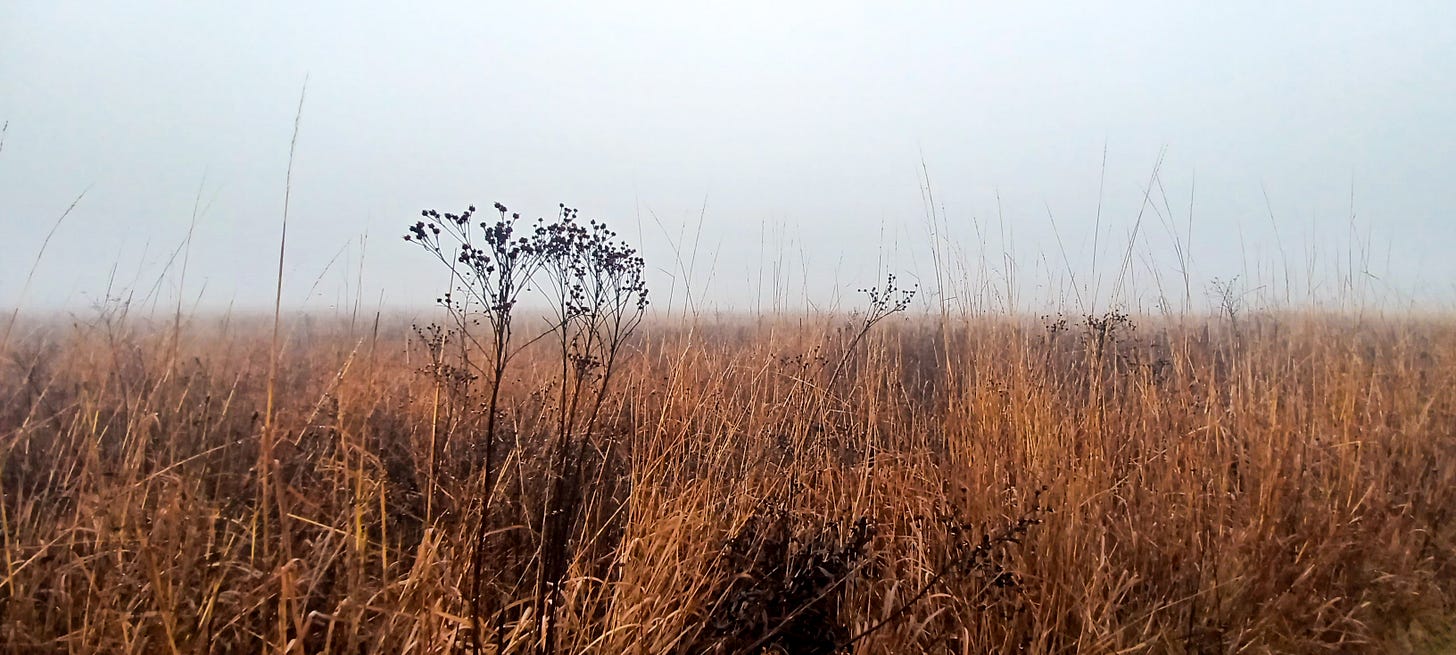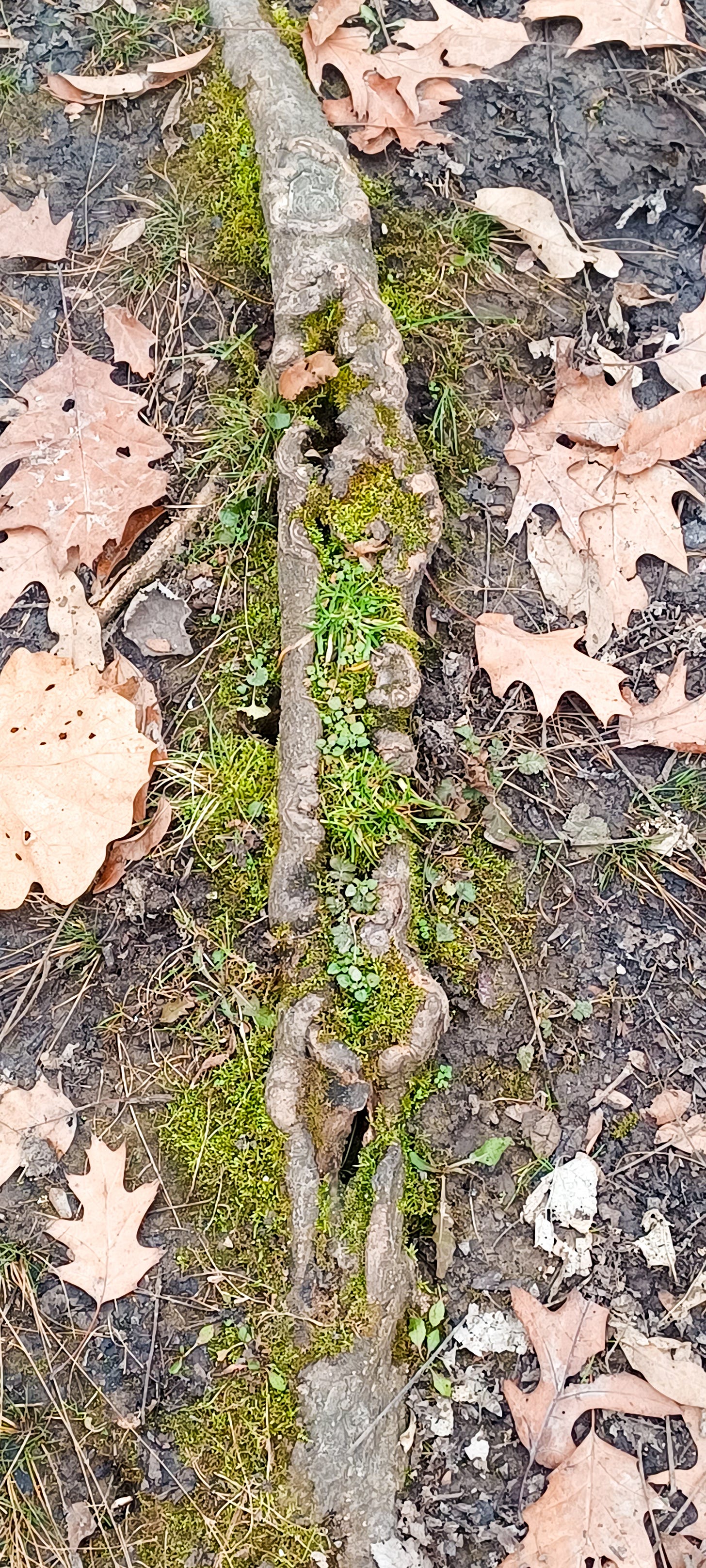I keep trying to write this essay about how it’s been three years since I had a drink but the story keeps sticking to the pan. Parts of it are burnt and other parts are still basically raw. I can’t quite swallow it down, bone in my throat, I can’t quite figure out how to digest it so that I can tell it.
Over the last fourteen months or so of writing this newsletter I’ve written around quitting drinking: I’ve told you about my mental health collapse in 2019 that came with moving from Atlanta to central Illinois, farming through the pandemic, the way that trying to unlearn species loneliness opened up a whole new kind of relationship to the natural world and my place in it. I’ve told you about the decade-plus creative freeze and how tending a garden and going to chorus practice have helped to melt it. Everything in these newsletters has been true, but it hasn’t been the full story. “[S]torytelling—even the telling of true stories—demands some smoothing-out, some glossing-over in order to make the narrative.” says Alicia Kennedy in her most recent newsletter.
When I tell the story about how I quit drinking and why to friends I’ve known for a long time, that also isn’t the whole story. It sounds so easy coming out of my mouth - “and then I’ve just never had a drink again.” Simple. Easy peasy. But when I read back through the journals I was keeping at the time, the words are twisted into knots of panic and fear and pain, and that’s what strikes me - I was in so much (almost entirely self-inflicted and yet still genuinely excruciating) pain.
Maybe part of my resistance to telling the story is that it looks a lot like many other people’s stories, and I hate to tell you one you’ve already heard. Plus, while I’m not proud of it, there’s part of me that just wants to be different from other people, exceptional somehow. Reading and hearing the stories of how and why other people quit drinking made it possible for me to do the same, to even think the thought in the first place, and yet I’m afraid you’ll think I’m trying to give advice, or that I think it’s something you should aspire to. No! I had to quit drinking to walk through the threshold of my life, so that I could have a different story about myself than the one that outstayed its welcome. Not everyone has to quit drinking to do this, but I did.
The problem with the old story that I had about myself was that it wasn’t told from my point of view. It was always imagining and guessing and projecting how other people saw me and their judgment of me - coworkers, strangers, people I talked to once in my life just as much as my friends and family. I wanted to be a Cool Girl, a funny girl, so chill and so fun, the one who’s always down to ride, up for adventure, devil-may-care with jester’s privilege to say the most outrageous thing, who wins every argument because she’s so smart and perceptive, who brings the party to life and who’s immediately perfect at every single thing. And when I inevitably failed at being all of those things to everyone at the same time, no matter how much love and affirmation I received from the people close to me, I felt like a worthless, unlovable monster.
Living this way, almost entirely through the eyes of others, made me, at various times in various ways: codependent in the extreme, self-righteous, defensive, aggressive, passive-aggressive, passive, sloshing over the brim with shame, indirect, absolutely terrified, it made me want to Save The World and believe it was my personal responsibility to do so, while also making me incredibly selfish. Among other things. In short, it drove me out of my mind, as it would anyone.
The problem is that everyone else’s version of the story is different than mine, and mine changes all the time - there’s no solid ground to stand on. The problem is that these events, these shifts, have more of an intuitive connection than a logical progression but they are no less necessary to each other. The problem is that these are not problems I have.
Say what you want about the Universe working in mysterious ways, but when I’ve needed to change my life the signs have been incredibly clear. Full-volume shouting, in fact, has been necessary to really break through my nearly soundproof walls of denial. As I mentioned, I was in a bad place when I moved to Illinois in 2019. You can move wherever you want to, start over however many times you want to, but you’re still carrying around everything you had before. My world started to get smaller and smaller until I had to take notice, I had to change something. Or, more accurately, almost everything.
The first signal that things couldn’t continue as they had before was when my usual methods of making new friends - getting hammered and acting a fool - somehow (lol) didn’t charm folks here. I got no second auditions which meant nobody to go out drinking with. The second signal was when we went into Covid lockdown. Maybe if I had been able to take that time to actually sit with all of the terror of that time period that would have been enough. But no! Absolutely not! Instead I continued my codependent patterns with a timbre of volatile, frantic panic, and I kept drinking. But then finally in November of 2020 I fell down the stairs and broke my ankle in two places (not drunk that time, just clumsy) and couldn’t walk normally for three months and that’s when the signals got through. Clearly I needed to just…sit down for a minute and stop trying to grind through existence the same way I’ve been going.
A couple things were happening at the same time that helped to facilitate the shift. I was doing EMDR through video calls every week - a therapy for putting yourself back into places of painful memories and re-processing the emotions that those memories bring up. I started attending the meditation sessions and services at the local Zen Center over Zoom and then later in person. And I started physical therapy for my ankle, which included a lot of dry needling. If you know you know, but if you don’t know: the PT basically finds the focal point of the pain you’re feeling and then jabs at the nearest nerve with a needle while the surrounding muscle tissue spasms and clenches and then (a day or two later) finally releases, bringing relief to the original pain - but of course you have to go through the intensity of the pain corridor first.
This combination of things (and trust me, no one is more annoyed than I am that the practices that are widely purported to be “good for you” like therapy and meditation were actually, turns out, really good for me) totally changed my relationship to emotional and physical pain. I learned that going towards the source of the pain instead of running from it at all costs - being willing to be in pain and to stay in that place for a while and to see what happened - actually made my moment-to-moment experience of living much, much less painful. I learned to do for myself emotionally what dry needling had done for me - to find the center of the pain spot and to experience the writhing, screeching, unbearable feelings that it brought up, and then to breathe through the grip of whatever feelings, whatever story had me in thrall - whether it was that I was worthless or terminally unlovable and hateful, all of it - until I could feel it start to dissolve bit by bit. And you know what? Living that way really changed me.
Every couple months the Zen Center holds sesshin, a few days of intensive meditation. The group meditates together for many hours over the course of each day and the practice leader gives a dharma talk in the afternoons. “See the world around you as supporting you,” the practice leader said during one such dharma talk. “Whether it’s a tree branch through the window or somebody driving by playing their music very loud, and it makes you come back to yourself sitting here. All of it can be supporting you.” I don’t go to the Zen Center anymore, but this one has really stuck with me.
This has become part of my process of unlearning species loneliness. The geese honk erratically but pausing to listen to them stops me from walking under a tree that’s about to fall across the hiking path. The sound of a beaver leaving the river, like a kid getting out of the pool. The light from the river’s tiny vortices reflecting off the white bark of the sycamore. I started to tune into the ecosystem the way I tune into my body.
This fundamentally changes the way I see nonhuman nature; landscape. I’d been very much “into” hiking, backpacking, and gardening for many years, but the landscape was always a background to the goal - getting somewhere, growing something to eat, etc. But now, less and less frequently did there feel like there was a goal to be had and more that being out in the woods or walking through the prairie restoration was itself the point. It’s not exactly a causal one-to-one, but more like spending time out in nature with curiosity and slowness, combined with the awareness and presence that came from meditation and therapy - they reinforced each other, made each other more vivid.
Nobody told me that when I quit drinking I’d be able to hear what the trees say or that I’d fall in love with a river or start receiving instructions from my dreams, but that’s all been happening. It feels like I have a home inside myself, and a place in the world. There are specific places on the planet now that I have a relationship to that is unlike anything else I’ve ever had. Something truly wild and magical unfolds when you go to the same place over and over again over the course of years. It’s devotion, that kind of repetition, staying tied to one place. It is more than I ever could have imagined. I know for sure that it would not be possible if I was still drinking. It’s not true for everyone but it’s true for me. That’s my story and I’m sticking to it.
Thanks for reading & see ya next time.





